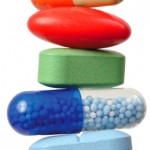Potential New Drug for Psoriatic Arthritis
Arthur Kavanaugh, MD, professor of clinical medicine and director of the Center for Innovative Therapy in the division of rheumatology, allergy, and immunology at the University of California, San Diego, reported on the results of a phase III, multicenter, randomized, double-blind, placebo-controlled, parallel-group, efficacy and safety study of two doses of apremilast (CC-10004) in subjects with active psoriatic arthritis (PALACE 1) study.
The study included 504 patients with a diagnosis of psoriatic arthritis (PsA) for six months or more treated currently or previously with disease-modifying antirheumatic drugs (DMARDs) or biologics randomized to apremilast (20 mg twice daily; n=168), apremilast (30 mg twice daily; n=168), or placebo (n=168). Patients were excluded from the study if they failed previous treatment with more than three DMARDs or biologic agents or more than one biological TNF inhibitor, or if they had active tuberculosis. Patients were allowed concurrent treatment with stable doses of methotrexate, sulfasalazine, and/or leflunomide.
Overall, 23.6% of patients had received prior biologic treatment, of which 9.3% failed treatment with a biologic agent. Of the 64.9% of patients receiving DMARDs at baseline, most were taking methotrexate (54.2%).
Based on the primary endpoint of achieving ACR20 at Week 16, the study found that significantly more patients treated with apremilast achieved ACR20 than those taking placebo. Compared with 19.4% of patients in the placebo group, 31.3% of patients treated with apremilast (20 mg; P=0.0140) and 41.0% of those treated with apremilast (30 mg; P<0.0001) achieved ACR20 at 16 weeks.
Similar results were seen at 24 weeks, with significantly more patients treated with apremilast achieving ACR50 and ACR70 compared with placebo. Overall, ACR50 was achieved in 4.2% of patients receiving placebo versus 15.3% of patients treated with apremilast (20 mg; P<0.05) and 19.9% of those treated with apremilast (30 mg; P<0.0001), and ACR70 was achieved in 0.6% of the placebo group versus 5.5% in the apremilast (20 mg) group (P<0.05) and 11.2% in the apremilast (30 mg) group (P<0.0001).
The study also found that apremilast was well tolerated, with most adverse events reported across all treatment groups as mild to moderate. The adverse events included diarrhea, nausea, headache, and upper respiratory tract infection. One or more serious adverse events occurred in eight patients on 20 mg apremilast and nine on 30 mg apremilast compared with seven on placebo. According to Dr. Kavanaugh, one patient receiving 20 mg apremilast died, but her death was not thought to be drug related.

